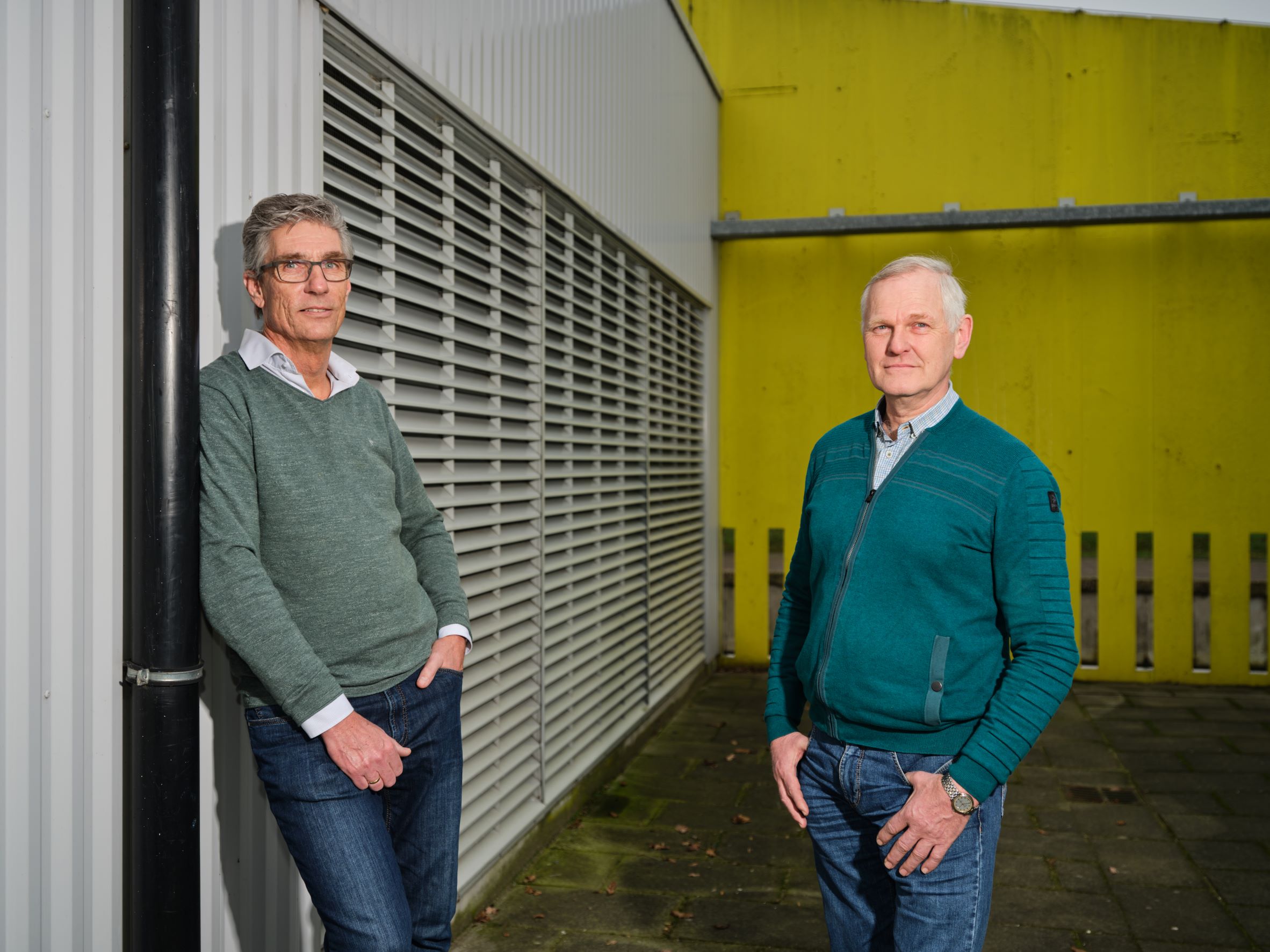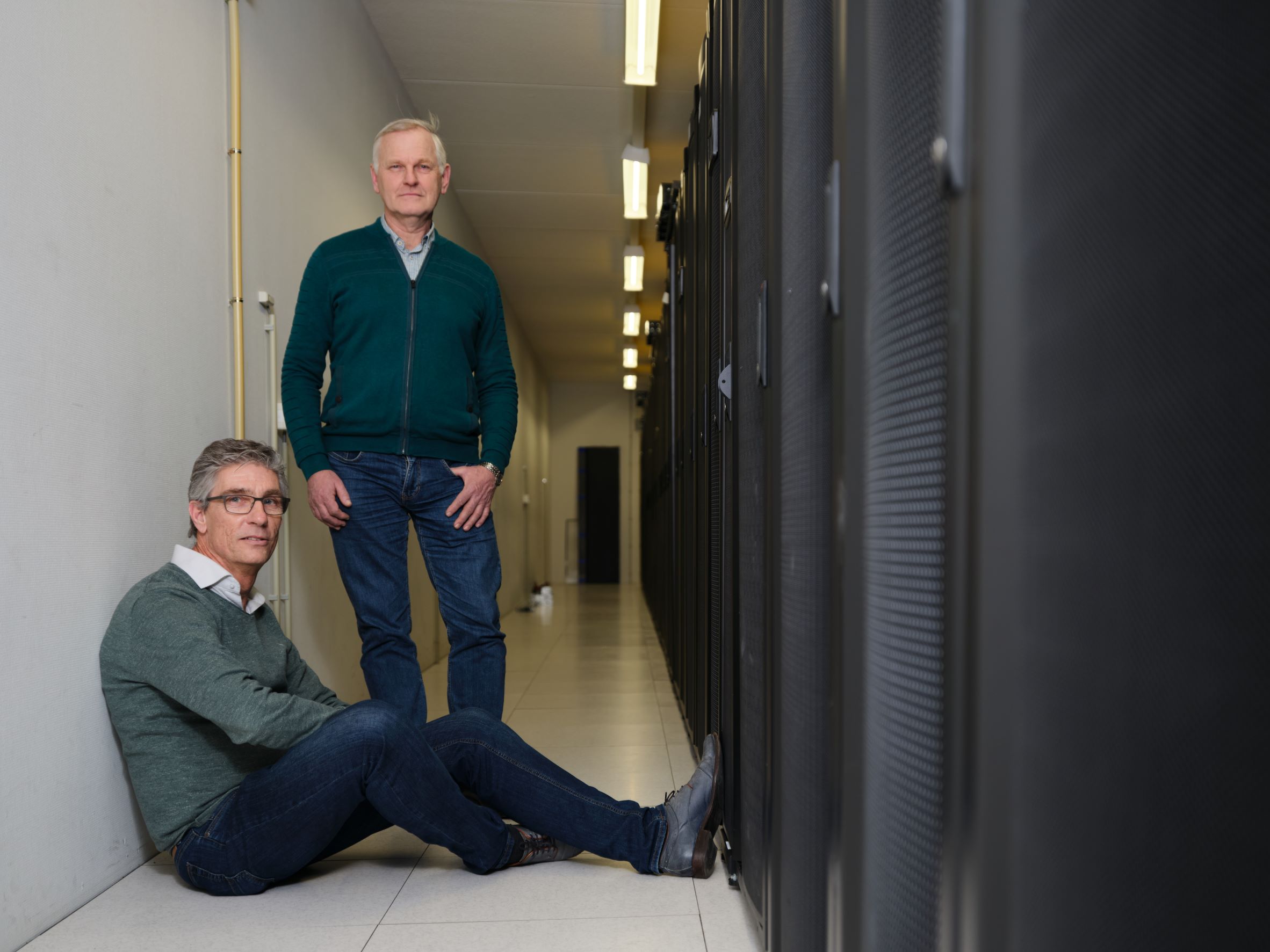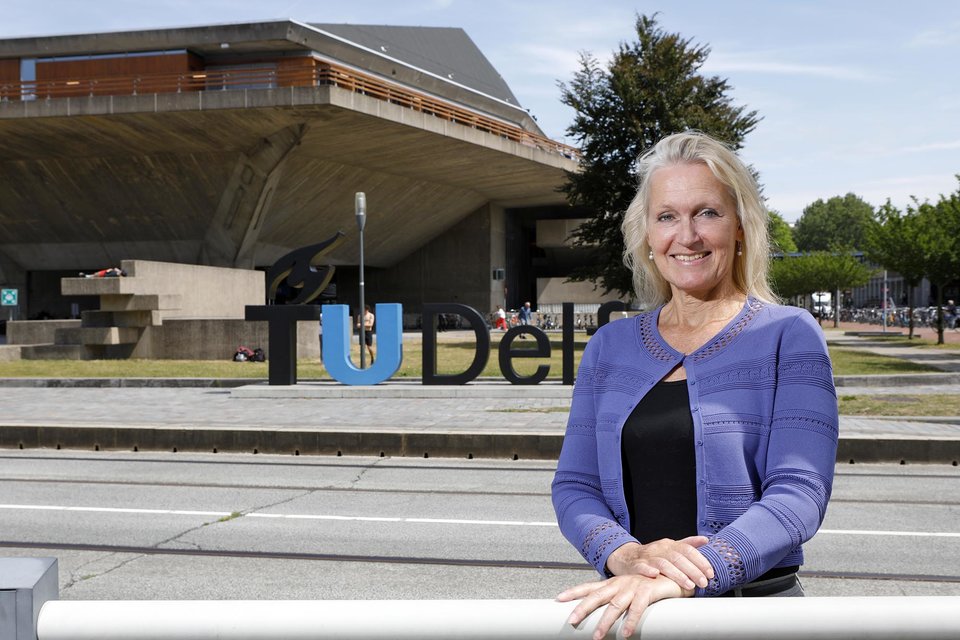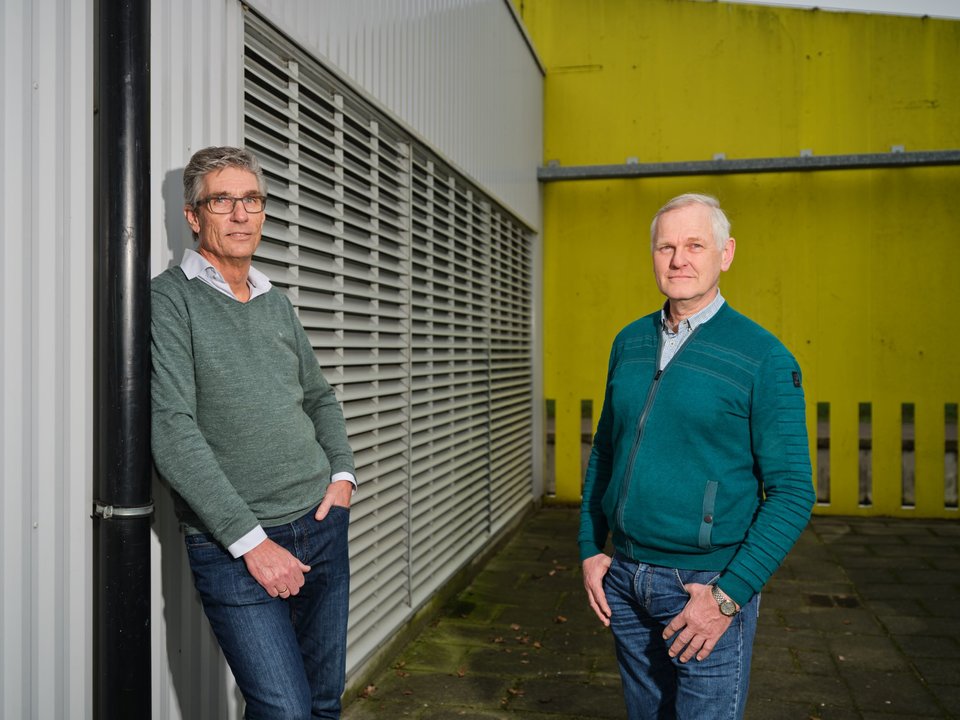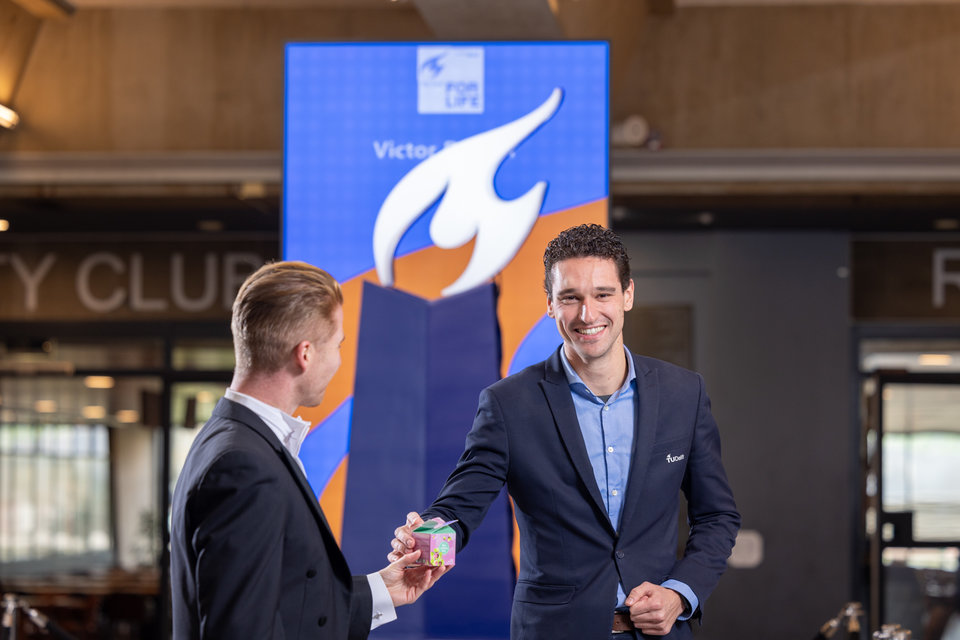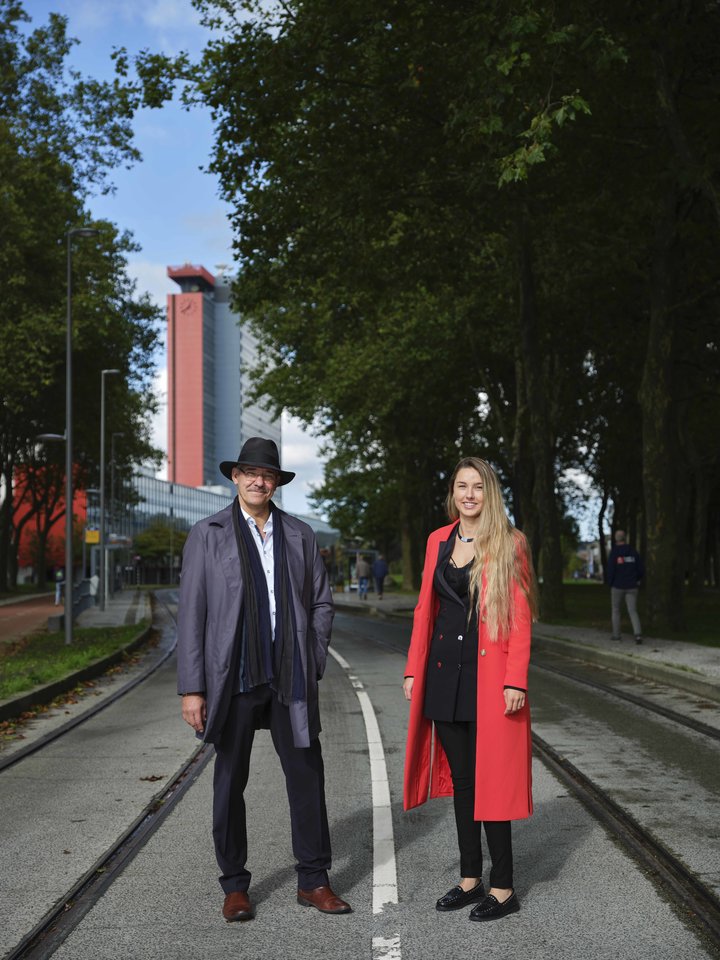Simulations, models, and working with big data all require enormous computing power: High Performance Computing or HPC. Up to now, TU Delft researchers have been able to do this at Cartesius and its successor Snellius, the national supercomputer run by SURF. From 2022 onwards, TU Delft will also have its own supercomputer: DelftBlue. With the arrival of Delft Blue, a long-held wish is coming to reality.
DelftBlue: the name was chosen from 120 submissions to a competition, says Professor Kees Vuik, scientific director of the Delft High Performance Computing Centre (DHPC). “Prometheus was entered a lot, as was DelftBlue and variations thereof. We thought this was the best name. Delft Blue is already a household name internationally.”
The name is just the icing on the cake of a project with a long history. In the second half of the last century, central computing centres were commonplace at universities, but with the arrival of PCs and laptops, everyone had their own computing centre on their desk, so to speak. In addition, since 1984 universities have been able to use the supercomputers of the Stichting Academisch Rekencentrum Amsterdam (SARA), now part of SURF. “That worked well enough for a long time, but eventually scientists began to have second thoughts. They were missing something that was only available in Amsterdam,” says Vuik. What followed were various attempts to achieve centralised computing power at TU Delft. “In the early days, this was initiated by ICT, but later on we as researchers started thinking we knew best what was good for us. In 2005 a supercomputer was installed at the Faculty of Applied Sciences, but as scientific staff we could not offer the necessary support,” says Vuik.
Frans Broos, ICT manager at the EEMCS and TPM faculties, also remembers such initiatives. “In 2007, we bought a computer cluster at TPM with the ambition of making it available to the entire university. However, the urge to cooperate only came from our side, so that's where it ended.” As an ICT professional, he did have some issues with that. “If several research groups want to do the same thing, but do not want to do things together, you inevitably end up having to duplicate your efforts. We made an attempt to set up a high-performance computing group around 2012, but if you try to pull that off as ICT department, you don’t get a lot of support,” he says.
In 2017, Vuik was one of the initiators of the TU Delft Institute for Computational Science and Engineering (DCSE). “At the time, we assessed what we might be able to do for researchers. It turned out that many groups had already sought their own solutions together with ICT. There were some ten or twelve smaller computer clusters, but everyone indicated that it was a waste to keep reinventing the wheel,” he says. “It is also not efficient. One week your cluster is fully booked and you don’t have enough capacity, then when the next week a deadline has passed, things come to a standstill. That's when I asked Frans to come for a coffee.”
Silver platter
Broos remembers it well: “Kees came up with a single A4 sheet stating what he thought needed to be done. He wanted to do that in collaboration with ICT. It was handed to me on a silver platter, as it were.” Looking back, the solution was obvious: if initiatives by ICT don’t get full support, and scientific staff cannot provide technical support for their initiatives, things will only succeed in collaboration. “DelftBlue’s success factor is that it is based on a vision from our scientific staff, while ICT was able to indicate how best to realise it. You have to remain realistic; not all ambitions are feasible. When my colleagues and I tell Kees what will and will not work, he is very good at translating that message back to his colleagues. After all, researchers are there to conduct research, they're not system administrators.”
Supplier
That was back in 2017. A four-year procurement process followed. “We asked the market for advice, based on our broad outlines. Through discussions with suppliers we found out that certain things had to be changed or were not feasible. That is how we perfected our tender,” says Broos. “We then started to look for a partner. While we have very smart people at TU Delft, the specific knowledge we needed lay with the suppliers. This kind of tender – best value procurement – was new to us, but it turned out that suppliers also found it difficult to articulate why they could offer the best solution.”
The choice fell on Fujitsu. “They are now our partner for the next five to ten years. It is a partnership based on collaboration. We benefit from Fujitsu’s knowledge, R&D capacity and market volume, but the intention is that our researchers will provide feedback and recommendations on the application of HPC in research and education.”
‘Before, I had to beat around the bush when someone asked to see the computer’
How are they going to make sure DelftBlue will be a TU-wide success? “The initial purchase has been financed by the Executive Board, but on the understanding that the DHPC should be able to stand on its own two feet eventually”, says Vuik. He won’t lose any sleep over it: “In the coming months, we are going to show that we can delight researchers and students with this, and then the funds will start coming.” Broos agrees: “A facility like this is a necessary toolbox for researchers, just like labs and wind tunnels. It is an expensive one, but now every faculty has to budget annually for their own computer facilities. If a dean or finance manager sees , they may wonder whether it is really necessary. They'd better come and talk to the DHPC”, he says.
Customisated solutions
They will get something in return. “You can get computing power at SURF or in the cloud. But in addition to computing power, you also need storage for your data. For reasons of confidentiality or privacy you can't just send everything into the cloud. Sending a lot of data via the internet to SURF in Amsterdam can take more time than the computation itself. In some cases, the data is therefore transferred to hard disks and delivered. It is precisely that memory aspect that is so important,” says Vuik.
Then there is the time factor. “If you buy computer time in Amsterdam, but your project is delayed, due to Covid-19 for example, your budget is gone and you have to submit a new application,” says Broos. “Now, a researcher who has an idea today will be able to start his computations tomorrow. It is important that we can move with the times in our dynamic organisation and deliver customised solutions. That works best in your own facility.”
Already, there is no lack of interest in the DHPC. “We visited Peter Palenski at the Control Room of the Future in the ESP lab, for example. They can’t wait to see how we can use DelftBlue to make their simulations even more realistic. HPC has definitely landed in Delft”, says Vuik. DelftBlue will also be used to develop High Performance Computing itself. “Examples are computation-in-memory, or the speeding up of algorithms.”
Education
Equally important is what they can offer students, Vuik and Broos believe. “It’s been giving me headaches for years. We teach students Matlab and Python, that is the basics. But the demand for knowledge of AI, machine learning, digital twins, etc., is increasing in society. So far, we couldn't offer students the right support there”, says Vuik. Currently, HPC subjects do not attract that many students either, but Vuik wants to change that. “You can't go to SURFsara with large groups of students, but with our own facility we can accommodate them. We deliberately reserve a certain amount of computer time for educational activities.” DHPC is emphatically not meant just for computational whiz kids or would-be programmers, but for all students. Broos: “We also want to help students who work with big data, for example. All too often have I received questions from students whose laptops got stuck on big data. Then they have to find another way to get their results.”
‘We are very satisfied as users. The will to work together is mutual.’
Collaboration
DelftBlue is no competitor of SURF, Vuik emphasises. “SURF has the largest systems; we are mainly supplementary.” Broos: “We still need SURF. The advantage is that we can now discuss existing challenges at an institutional level.” Vuik also sees opportunities for collaboration, though not in the first year. “For example, we may be better able to deal with satellite data and Leiden with medical data. In that case, you can help each other out.” Broos: “For some calculations, you can also benefit from other processors or a different type of storage than what we have chosen.” But they first want to put their own shop in order, as the saying goes. After that, there are plenty of plans. “We also want to make Delft Blue compatible with a quantum computer, because quantum encryption is already very advanced. So that is a definite dot on the horizon for us.”
Human capital
It is the excellent cooperation between WP and ICT that has made DelftBlue possible. “On one side we have people like Kees who map out the demand, and on the other side there is a team of ICT people who can focus purely on the technical possibilities. That is unique,” says Broos. Cluster manager Robbert Eggermont is the linchpin here. “He speaks the language of scientists and knows better than anyone what the possibilities and limitations of the equipment are.” Vuik is also a fan: "Robbert Eggermont is the best, he has our full support. But at the DHPC we have also invested in people who speak the language of the ICT department. We are building up human capital on both sides. We are very satisfied as users. The will to work together is mutual.”
Vuik is very happy that DelftBlue has arrived. “Before, I had to beat around the bush when someone asked to see the computer. Now we can offer researchers something great and that will bring in talented people”, he says. Broos is just as enthusiastic: “I am incredibly happy that we are able to do this. How gratifying it is when you receive an e-mail from a research group that is in a state of panic and you can tell them you can solve their problem the next morning.” And things are only going to get better in the coming years, he predicts. “We will soon have 800 to 1,000 people regularly using the DHPC, and flocks of MSc students will be taught HPC skills in basic courses. In addition to using the system, we also do research on the system itself. Our knowledge will be increasing across the board.”

